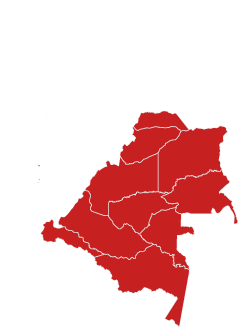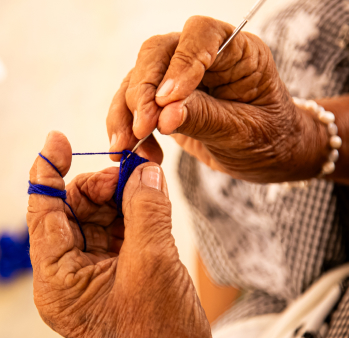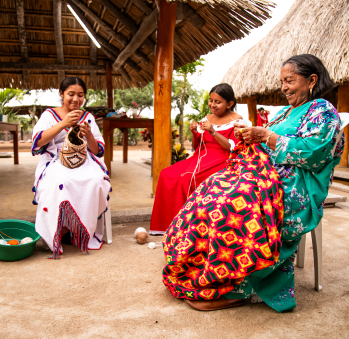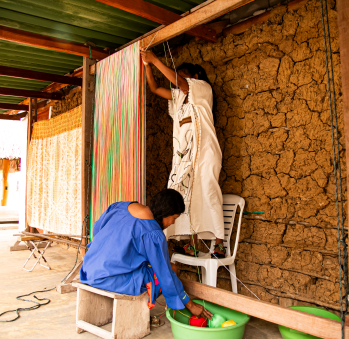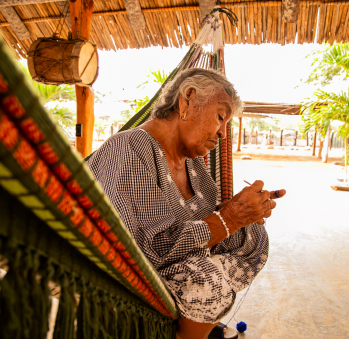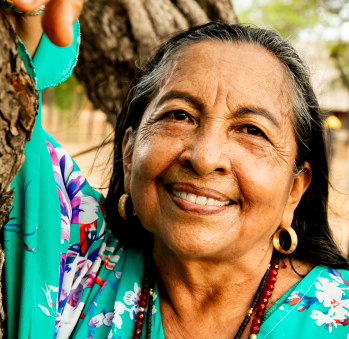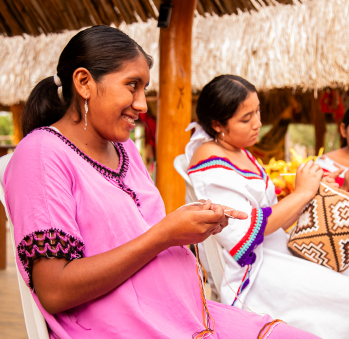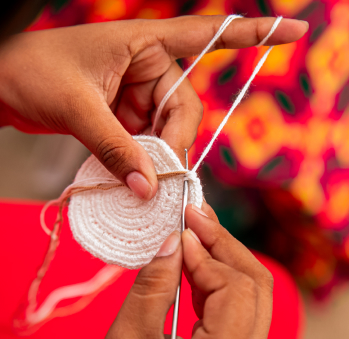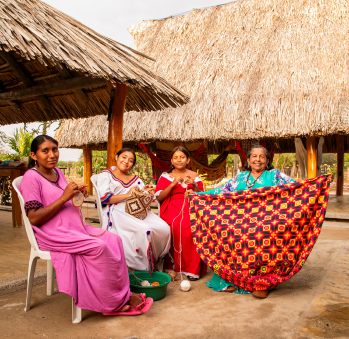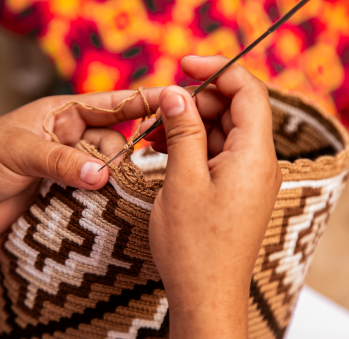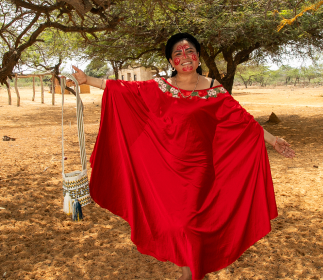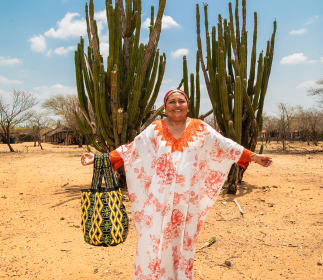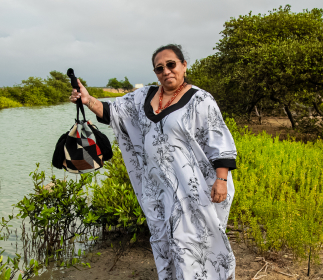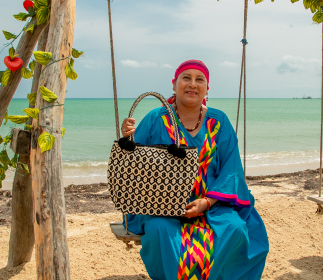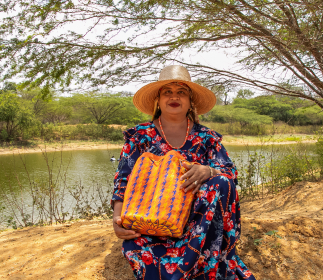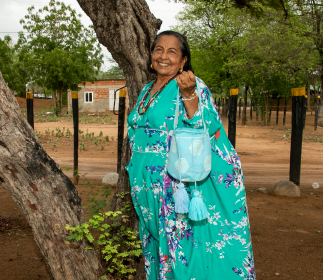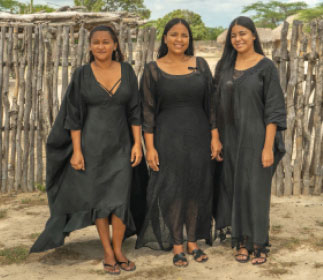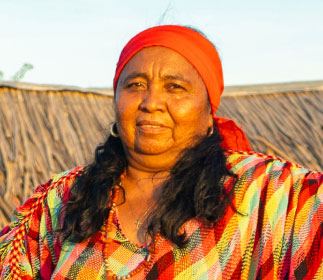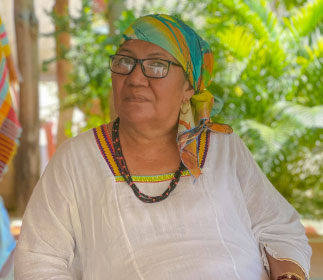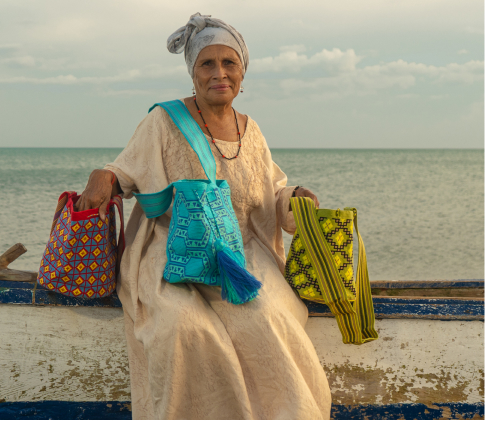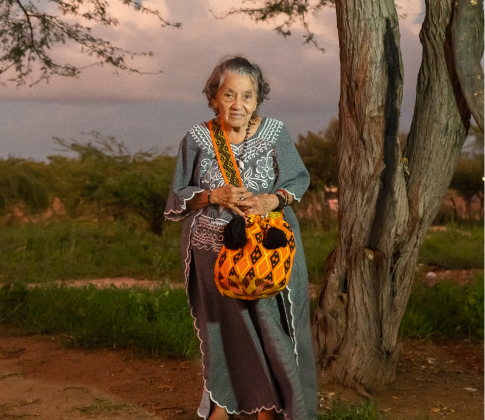Cenaida Pana
Workshop: Kanaspii
Craft: Weaving
Trail: Riohacha - Nazareth Route
Location: Uribia, La Guajira
Cenaida is a grateful woman who puts in God’s hands the good fortune arijunas, meaning all of us who are non-indigenous or white, may bring to her land. To express this sentiment, she offers a prayer: “Oh, Father God, we thank you. We also place this project that will benefit many families, in your hands. We will also share our experience, our moral, spiritual, cultural wealth, and, in addition to weaving, they will learn everything about the essence of our culture.” It’s hard not to be touched by her kindness and generosity as she recounts her story.
She’s defined by her “four old ladies,” as she affectionately calls them. They were her four aunts, her mother’s sisters, who helped her with the care of her daughters, all together, because she had the most. Cenaida would sit and watch them weave, in awe, wanting to learn herself, but they would stop her and tell her, with the wisdom that comes from having lived so much, to slow down, not to rush because she would tangle the threads, and with such mess, she would tangle her own life as well. And so, they taught her about slowness, to take it easy because if she stumbled due to haste, how would she learn the traditional drawings or kaanás of her culture? The old ladies said this because in the past, in a purely oral society, everything was learned by heart, so it was better to do everything calmly because forgetfulness could be final.
And so, she became the teacher she is today. Going through life lessons that stayed with her, like the one she recalls when she was confined and hung up high in a hammock, to induce nausea so she could vomit the mischiefs of childhood because, as an adult woman, it was no longer time to play. Additionally, they warned her about her choice of husband because when she married, she married into the family, and if she made a mistake, it affected her entire family nucleus. Likewise, if she made a misstep, all her sisters would too; a shared responsibility that she handled with caution and confidence.
During her years as an apprentice weaver, they explained to her that weaving was serious business, and therefore, if visitors came, she had to put away what she was doing. “Because your wisdom and the kaanás, they leave, run away, people take them, and then you are left empty, you have nothing left, as if you were giving away everything that is sacred,” her teachers told her. They insisted that, while learning, she couldn’t simply release her knowledge. Later, she learned crochet from the Capuchin tertiary sisters at the Uribia boarding school.
But her true teacher, as for all Wayuu women, was the spider, Wale’kerü. Cenaida recounts that as they walked along the paths to take the goats or sheep to graze, they would see spiderwebs with their magnificent weavings on the trees and branches. That was their first contact with the deep Wayuu thinking. It allowed her to understand, guided by her mentors, that the nature of everyday life was what was reflected in the backpacks, the simple stories they told. Those were the heads of flies, the donkey’s vulva, the tortoise shell, or the horse’s footprints in the sand were depicted.
Today, this knowledge is carried with joy and pride by Jarara, Cenaida’s thirty-something daughter. She knows she carries a powerful legacy, and she wears it proudly. With Kanaspi, her foundation, they are known as ambassadors of their land and will do what is necessary to preserve their family’s tradition. And everything indicates, happily, that it will be so.
Craft
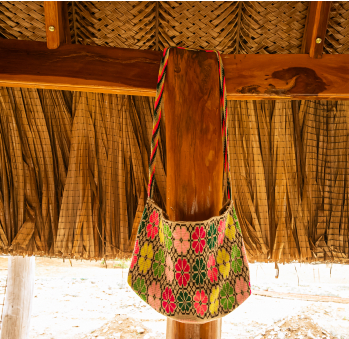
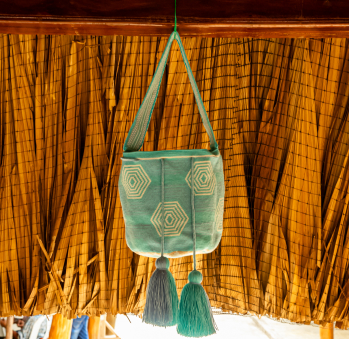
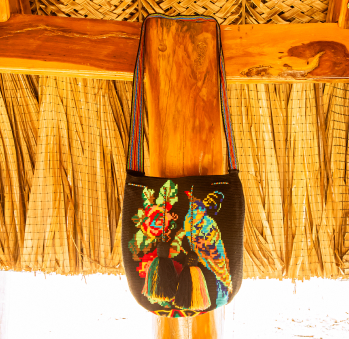
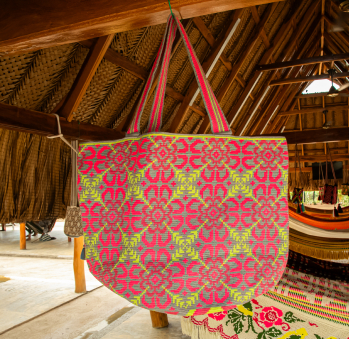
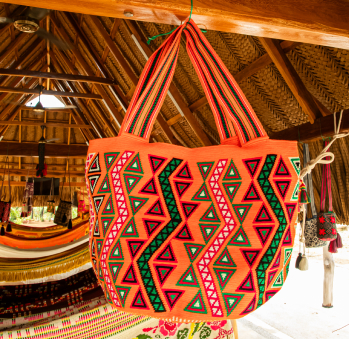
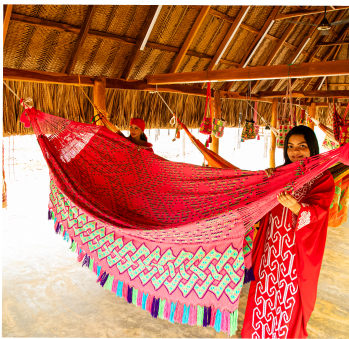
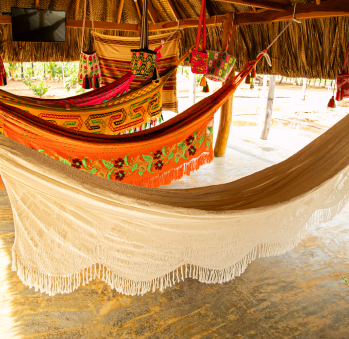
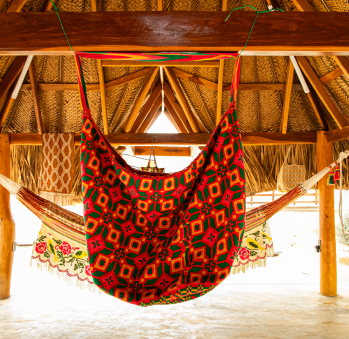








Artisans along the way
Artisans along the way
No puede copiar contenido de esta página

